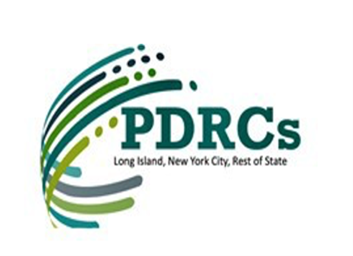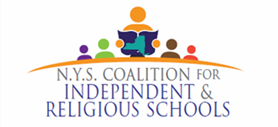|
By: Theresa Andersen & Claudia Belmonte Fordham University's PDRC in collaboration with the PDRCs from Long Island and Upstate partnered with the NYSCIRS (New York State Coalition for Independent and Religious Schools) to organize the the 37th Annual Religious and Independent Schools Educators Conference-RISE 2021- on Nov. 9th and 10th.
The theme of the conference was “to empower educators to make a world of difference for their students by committing themselves to learn, lead, strive and thrive together for their personal professional development needs”. Father McShane, President of Fordham University was the keynote on Wednesday and drew over 400 participants. Together with Kim Marshall, and Jodee Blanco also keynote speakers they brought to the forefront three key issues: getting the most from classroom assessments; the challenges that religious and independent school leaders and teachers are facing in the 21st century, and lessons learned during the Covid crisis and how to move forward supporting the well-being of leaders, teachers, parents, and students. The webinar sessions were given by presenters who shared their time, talent and expertise on topics that addressed the 6 Learning Strands: 1) Using technology platforms for learning 2) Sharing best practices in a student-centered curriculum, i.e. “What are the needs of the learners in our care?”; 3) How to access social-emotional resources for school staff and for their students to create a safe and nurturing school learning environment; 4) Exploring and discussing issues on cultural diversity and equity to ensure that the school climate and culture is welcoming for all students; 5) Proven leadership practices that support the staff and the parent community and to ensure high-quality instruction for all their students; 6) Best practices in early childhood instruction, curriculum, content and classroom management to plan, prepare, and instruct the youngest learners. The Fordham PDRC also sponsored several of the breakout sessions. Here is a summary. How/When to Incorporate Technology in Elementary Math Instruction, with Jaclyn Morales. In this breakout session, the resistance of using technology in the classroom during math is discussed. The information is most pertinent to elementary teachers grades 2-5. Participants learned ways to easily incorporate technology into any math lesson, using online manipulatives, whiteboards and examples of formal assessments. This session was highly interactive and the participants became familiar with a lot of resources. Leadership Development for High School Students, with Fr. James Kuroly, who emphasized the importance of schools finding innovative and creative ways to train young men and women to take on leadership positions. The presentation reviewed policies, structures and ways that are both effective and ineffective in training future leaders. He also emphasized the idea of encouraging students to learn about themselves, their environment, and leadership theories, as this will be instrumental in their leadership development. Digital Citizenship- Teaching Digital Ethics and Safety, with Dr. Christopher Scharbach. In this session, participants learned about ethical, responsible, and safe technology use in the classroom. Additionally, participants learned how to teach their students about digital citizenship in the classroom. Participants also learned about how to navigate digital citizenship online and how to raise student awareness on digital citizenship challenges. Re-Imagining Your Classroom Environment, with Robin Gattegno. This breakout session was both lecture based and interactive for participants. Participants learned about how to foster emotional intelligence in the classroom and how to promote young students’ sense of belonging, emotional regulation and socialization skills. This would lead to students feeling more invested in their learning. Participants also learn about challenges that students may be facing, particularly as they continue to adjust to the times of COVID, and adapt to different structures and routines in the classroom. Using Portfolios in Middle and High School Classrooms, with Chris Link. In this breakout session, participants learned about how to address student learning in STEM classrooms specifically, as there are many unique challenges. Participants learned about the importance of evaluating student performance in an open ended manner, and also became familiar with the different types of portfolios that can be used to monitor student achievement. Participants learned many ways to give feedback and give students more ownership of their learning. Mind-Body-Move: Supporting Learning Through Movement, with Janet Hon. This was another very interactive session where participants were introduced to the idea that movement supports learning. Participants learned more about states of regulation and explored movement activities that coincide with concepts in the curriculum. Participants became familiar with a variety of activities that can be applied to address a broad range of students’ individual needs. All of these techniques promote student success. The virtual nature of the RISE Conference allowed teachers, administrators, principals, guidance counselors, and other education professionals throughout New York City and New York State were able to connect with each other, learn from one another, and foster new connections. The virtual medium used for the RISE conference was instrumental in connecting hundreds of professionals. In conclusion, the RISE conference was a successful event overall and beneficial for our PDRC, where learning and connecting with other professionals in the education field was made possible. We are proud to have worked with the members of the NYSCIRS and the other two PDRC groups from Long Island and Upstate NY, to bring two days of high quality professional development to educators of New York coming together as one.
0 Comments
Your comment will be posted after it is approved.
Leave a Reply. |
Archives
January 2024
Categories
All
|


